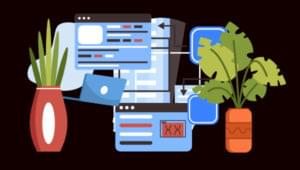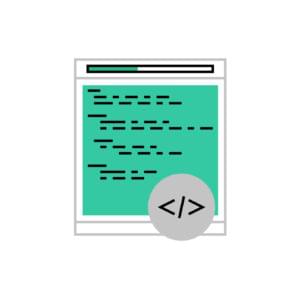
Cláudio Ribeiro is a software developer, traveler, and writer from Lisbon. He's the author of the book An IDE Called Vim. When he is not developing some cool feature at Kununu he is probably backpacking somewhere in the world or messing with some obscure framework.
Claudio's articles

In this Laravel tutorial, you'll learn about the building blocks of Laravel and how to use it to set up a small project.

Dive into the fundamentals of PHP frameworks and which are the best PHP frameworks for you, whether you're a beginner or PHP expert.

Learn about the Laravel PHP framework, exploring its history, its purpose, and some of its key components and features.

Learn about the different ways to get the current date and time in PHP and some additional considerations when working with time in PHP.

Learn how caching improves app performance and how to implement it in PHP through output buffering, caching functions, and database storage.

Learn the basics of exceptions in PHP, how to use throw, try and catch effectively, and how to write your own custom exceptions.

Learn some simple functions in PHP for trimming whitespace from strings, when you might need to use them, and a pitfall to watch out for.

Learn how to hash a password in PHP using the password_hash() function, why hashing is important, and how hashing differs from encryption.

Learn how to check if a variable is set in PHP, what its values are, and the differences between the isset, is_null, and empty methods.

Learn the basics of timezone usage in PHP, and how to make the best choice of the comprehensive range of functions PHP offers.

In this quick tip on PHP error reporting, we review the tools in PHP for handling errors in a controlled way to save hours of debugging.

Learn about the three basic, native PHP functions for quickly opening a local file, reading data from it, or writing data to it.

Learn the difference between PHP validation and sanitization and how to use filter functions, to ensure your PHP apps are reliable and secure.

Learn the fundamentals of PHP with books geared for PHP developers. We explore a list of the best PHP books in 2022 and beyond.

Cláudio Ribeiro introduces AWS Lambda, a handy way to create cron jobs when you don't have a dedicated server or computer that runs 24/7.

In this article, Cláudio Ribeiro looks at the exciting new possibilities surrounding variable fonts — now bundled with the OpenType scalable font format — which allows a single font to behave like multiple fonts.

Claudio Ribeiro shows how you can use explain and indexes to spot and remedy possible performance issues with your database before they strike.

Cláudio introduces Angular directives, arguably the most important bit of an Angular app, explaining what are they, how to use them, and to build our own.
Symfony's Console can be used in any non-Symfony project to develop command line apps. Learn about console helpers in this tutorial by Claudio Ribeiro!

Claudio re-introduces you to Twig - the most popular stand-alone (not enslaved to a framework) template engine for PHP. Come see how easy to use it is!

Claudio re-introduces you to Symfony Console - the command-line solution for all your PHP needs away from the browser. Let's build some terminal apps!

Crazy? Maybe! Claudio goes through setting up PHP, Git, and Composer on an Android device. Not only that, but he also deploys Laravel and SQLite!

Claudio explores the Reddit API - from searching to authenticating with Oauth and downloading user data. Come tame this powerful beast!

Claudio presents Voyager - an admin interface for Laravel with database management, media library, and menu builder! Laravel is now even more user friendly!

Claudio takes a look at Atlas - a new type of ORM that doesn't oversell. If you're dying for a breath of fresh ORM air, check it out!
Claudio introduces us to a new PHPCS standard - PhpCompatibility. This standard checks your code for compatibility with past and present versions of PHP!

A new tool for static analysis of PHP code has shown up: PHPSA - PHP Smart Analyzer. Tune in and check out what it can do!

We use tests to test our code. But... how do we test our tests? Let's take a look at Humbug: a mutation testing framework!